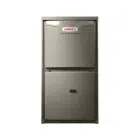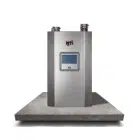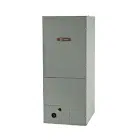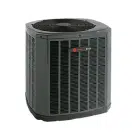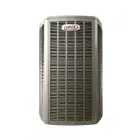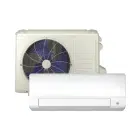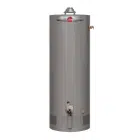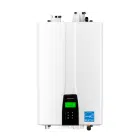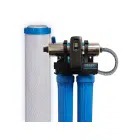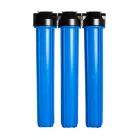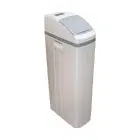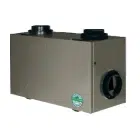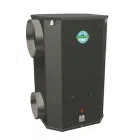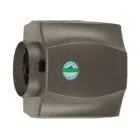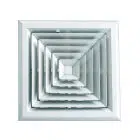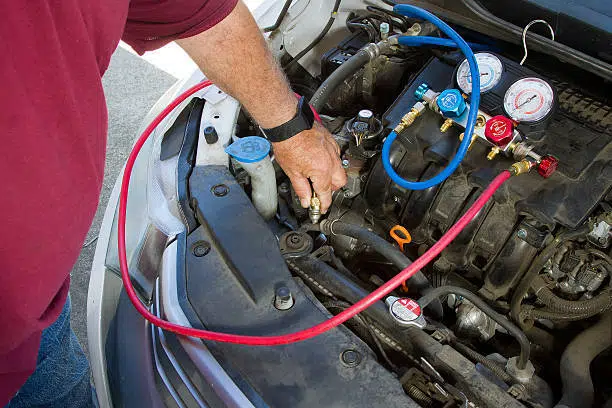
Table of Contents
Winter in Canada can be severe, with heavy snow, ice, and freezing temperatures. Homeowners often take various steps to winterize their homes and protect their investments, and one question that frequently arises is whether to cover their air conditioning unit. The debate centers around the benefits of protecting the unit from debris and weather damage versus the potential downsides, such as moisture trapping and pest issues. Understanding both sides of the argument can help you make the best decision for your home and HVAC system.
Why Cover Your Air Conditioner in the Winter?
Protection from Debris
One of the main reasons homeowners consider covering their air conditioners in Canada is to protect them from debris. During the fall, leaves, dirt, and other debris can accumulate in and around the unit. This debris can cause blockages and damage the internal components of the air conditioner. By covering the unit, you can prevent this buildup and keep the system clean and free from potential hazards.
Prevention of Snow and Ice Damage
Another significant benefit of covering your air conditioner is protecting it from snow and ice. In Canada, winter storms can bring heavy snowfalls and ice accumulation. This can put a lot of stress on the air conditioner’s exterior and even lead to damage of the internal components. A cover can provide a barrier that prevents snow and ice from directly contacting the unit, reducing the risk of damage.
Extended Lifespan
By protecting your air conditioner from debris and snow, you can potentially extend its lifespan. The less wear and tear the unit experiences, the longer it will function efficiently. Regular maintenance, combined with the added protection of a cover during the winter months, can help ensure your air conditioner remains in good working condition for many years.
Check out all the information you need about the air conditioner maintenance schedule in our previous article.
Energy Efficiency
Using an air conditioner cover can also contribute to energy efficiency. When an AC unit is clean and free from debris, it runs more efficiently. Covering the unit during the winter prevents debris from getting inside, ensuring it operates optimally when you need it most. An efficient system uses less energy, saving you money on your utility bills.
Peace of Mind
For many homeowners, AC covers provide peace of mind. Knowing that your unit is protected from harsh winter conditions can reduce anxiety about potential damage and costly repairs. This reassurance is a significant benefit for those who want to ensure their HVAC system is well-maintained.
Why You Might Not Need to Cover Your Air Conditioner
In our previous guide, you will find more about the ideal room temperature in Canada.
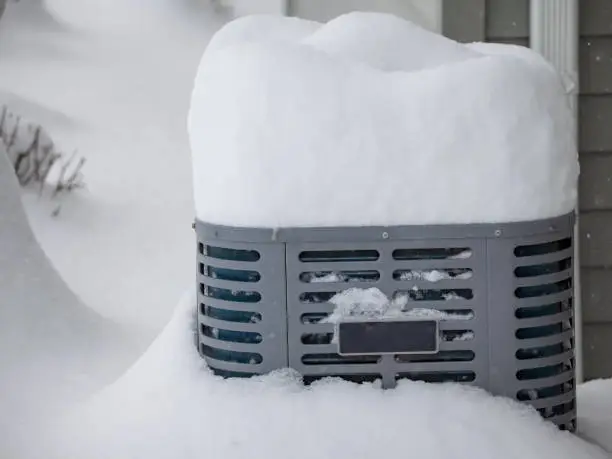
Moisture Trapping
While air conditioner cover can protect it from debris and snow, it can also trap moisture. When moisture is trapped under the cover, it can lead to rust and corrosion of the metal components. This is especially problematic if the cover does not allow for proper ventilation. Moisture buildup can cause significant damage over time, potentially leading to expensive repairs or even the need to replace the unit.
Rodent and Pest Issues
A covered air conditioner can become an inviting shelter for rodents and pests. During the cold winter months, animals such as mice and squirrels look for warm, sheltered places to nest. A covered air conditioner provides an ideal hiding spot. These pests can chew through wires, build nests inside the unit, and cause extensive damage. In some cases, the damage caused by rodents can be more severe than the damage from winter weather.
Manufacturers' Recommendations
Many manufacturers do not recommend air conditioner cover during the winter. Modern air conditioners are designed to withstand harsh weather conditions, including snow and ice. Manufacturers often design the units with features that allow them to endure winter conditions without the need for covers. It’s essential to check the manufacturer’s recommendations for your specific model. Ignoring these guidelines can potentially void warranties and lead to unnecessary issues.
Should You Cover Your Air Conditioner: Pros and Cons | |
|---|---|
Pros | Cons |
Protection from Debris – Covers can prevent leaves, dirt, and other debris from accumulating in and around the unit, reducing blockages and potential damage.
Protection from Debris – Covers can prevent leaves, dirt, and other debris from accumulating in and around the unit, reducing blockages and potential damage. | Moisture Trapping – Covers can trap moisture, leading to rust and corrosion of metal components, especially if there is not enough ventilation.
|
Prevention of Snow and Ice Damage – Heavy snow and ice can damage the exterior and internal components of your unit. A cover provides a barrier against these elements.
| Rodent and Pest Issues – Covers can become inviting shelters for rodents and pests, leading to potential damage from chewing wires and nesting.
|
Extended Lifespan – By reducing exposure to debris and harsh weather, covering your unit can help extend its lifespan.
| Manufacturers’ Recommendations – Many manufacturers design their units to withstand winter conditions and do not recommend covering them, as it might void warranties.
|
Energy Efficiency – A clean unit runs more efficiently, and covers can help keep the unit free from debris, improving energy efficiency. | Energy Efficiency – A clean unit runs more efficiently, and covers can help keep the unit free from debris, improving energy efficiency.
|
Peace of Mind – Knowing that your unit is protected can reduce anxiety about potential damage and costly repairs.
| Additional Maintenance – Using covers requires additional maintenance to ensure they are properly secured and checked for wear and tear. |
If you’re concerned about the potential downsides of a fully air conditioner cover, there are alternative solutions to consider.
Partial Covers
Partial covers are designed to protect only the top of the unit. These covers prevent debris from falling directly into the air conditioner while allowing for airflow around the sides. This can help mitigate the risk of moisture trapping and provide some level of protection from snow and ice. Partial covers offer a balanced solution that provides protection without completely enclosing the unit.
Regular Maintenance
One of the best ways to protect your air conditioner, regardless of whether you cover it, is through regular maintenance. Cleaning the unit regularly, removing debris, and ensuring that the components are in good working order can help prevent many of the issues that covering aims to address. Regular air conditioner maintenance should include checking for any signs of wear and tear, cleaning the coils and fins, and ensuring that the drainage system is functioning correctly.
Conclusion
There are valid arguments for and against covering your air conditioner in the winter. The best choice depends on your specific circumstances, including the type of unit and the local environment. For personalized advice and professional maintenance services, contact HVAC Service Solutions. We’re here to ensure your HVAC system is ready for whatever winter brings.
Frequent Asked Questions
Do I need AC covers in the winter?
Whether you need to cover your air conditioner in the winter depends on various factors such as the type of unit, its location, and local weather conditions. Covering your air conditioner can protect it from debris and harsh weather elements, potentially extending its lifespan. However, covers can also trap moisture, leading to rust and corrosion, and they can become inviting shelters for rodents and pests. Some modern air conditioners are designed to withstand winter weather without the need for covers, and using a cover can sometimes void the warranty if the manufacturer advises against it. It’s essential to weigh the pros and cons and consider your specific situation. For tailored advice, consulting with HVAC professionals like those at HVAC Service Solutions can be beneficial. They can help you decide whether covering your air conditioner is the right choice for you.
What are the benefits of using the AC covers?
Using an air conditioner cover offers several benefits, particularly in regions with harsh winter conditions like Canada. Firstly, it protects the unit from debris such as leaves, dirt, and branches, which can accumulate and cause blockages. Secondly, it shields the air conditioner from snow and ice, which can damage both the exterior and internal components. This protection can help extend the lifespan of your air conditioner by reducing wear and tear. Additionally, keeping the unit clean with a cover can improve its energy efficiency, as a debris-free system operates more smoothly. Finally, using the AC covers provides peace of mind, knowing that your air conditioner is safeguarded against winter weather. By investing in a quality cover, you ensure that your air conditioner remains in good condition and ready for use when warmer weather returns.
What are the downsides of using an air conditioner cover?
Despite the benefits, there are notable downsides to using an air conditioner cover. One major issue is moisture trapping. When a cover traps moisture, it can lead to rust and corrosion of the metal components inside the unit. This is particularly problematic if the cover is not breathable and lacks proper ventilation. Another downside is that covers can attract rodents and pests looking for shelter during the winter months. These animals can chew through wires and build nests inside the unit, causing significant damage. Furthermore, some air conditioner manufacturers advise against using covers, as modern units are designed to withstand winter conditions. Ignoring these guidelines can void your warranty. Lastly, using a cover requires additional maintenance to ensure it is properly secured and checked regularly for wear and tear, which can be time-consuming.
Can using a cover void my air conditioner's warranty?
Yes, using an air conditioner cover can void your warranty if it goes against the manufacturer’s recommendations. Many modern air conditioners are built to endure winter conditions without needing a cover. Manufacturers often design these units with specific features to handle snow, ice, and cold temperatures. Covering the unit could interfere with its proper functioning, potentially leading to issues that the warranty will not cover. Always refer to your air conditioner’s user manual or consult the manufacturer’s website to understand their stance on using covers. Ignoring these guidelines might result in voiding the warranty, leaving you responsible for any repairs or replacements. It’s crucial to follow the manufacturer’s recommendations to ensure that your air conditioner remains protected under warranty.
Are partial covers a good alternative to full covers?
Partial covers are indeed a viable alternative to full covers for protecting your air conditioner. These covers are designed to shield only the top of the unit, preventing debris from falling directly into the air conditioner while allowing airflow around the sides. This helps reduce the risk of moisture trapping, a common issue with full covers. Partial covers also minimize the likelihood of overheating, especially for heat pump systems that might operate during warmer winter days. Additionally, partial covers are less likely to become a nesting spot for rodents and pests since they do not completely enclose the unit. Using a partial cover can provide a balanced solution, offering some protection without the drawbacks associated with full covers. For optimal results, ensure that the partial cover fits well and is made from durable, weather-resistant materials.
How often should I maintain my air conditioner?
Regular maintenance of your air conditioner is essential to ensure its longevity and efficiency. At a minimum, you should perform a thorough inspection and cleaning at least once a year, preferably before the start of the winter season. During maintenance, check for any signs of wear and tear, clean the coils and fins, and ensure the drainage system is functioning correctly. If you decide to cover your air conditioner, it’s important to inspect the cover regularly for any damage or signs of pests. Maintenance should also include checking for any blockages or debris that might have accumulated during the winter months. Regular professional maintenance by HVAC experts, such as those at HVAC Service Solutions, can help identify potential issues early and keep your air conditioner running smoothly. By staying proactive with maintenance, you can extend the lifespan of your air conditioner and ensure it operates efficiently when you need it most.
Can covering my air conditioner improve its energy efficiency?
Yes, covering your air conditioner can improve its energy efficiency by keeping it clean and free from debris. When an air conditioner is free from obstructions, it operates more smoothly and efficiently. Debris such as leaves, dirt, and branches can cause blockages and force the system to work harder, leading to increased energy consumption. By using an air conditioner cover during the winter, you can prevent this debris from accumulating and ensure the unit remains clean. A clean system not only runs more efficiently but also reduces the risk of breakdowns and costly repairs. Improved energy efficiency translates to lower utility bills, making the investment in an air conditioner cover worthwhile. However, it’s important to choose a cover that is breathable to avoid trapping moisture, which can cause other issues.
Will a cover protect my air conditioner from winter storms?
A cover can provide a significant level of protection for your air conditioner during winter storms. Heavy snow and ice can put a lot of stress on the air conditioner’s exterior and internal components. By using an air conditioner cover, you create a barrier that helps prevent snow and ice from directly contacting the unit. This protection reduces the risk of physical damage and can help ensure the system remains in good condition. Additionally, covers can prevent windblown debris from getting into the air conditioner, further safeguarding it from potential harm. However, while a cover can offer protection, it is not a substitute for regular maintenance and inspections. Ensure that the cover is properly secured and check it periodically throughout the winter to make sure it remains intact and effective.
What should I look for in a good air conditioner cover?
When selecting an air conditioner cover, it’s important to choose one that meets several key criteria to ensure optimal protection. First, look for a cover that is breathable to prevent moisture buildup, which can lead to rust and corrosion. The cover should fit well to avoid being dislodged by wind, and it should be made from durable, weather-resistant materials to withstand harsh winter conditions. Check that the cover is easy to install and remove, as you’ll need to take it off during maintenance or when the unit is in use. Additionally, some covers come with features like adjustable straps or elastic hems for a more secure fit. Investing in a high-quality cover can provide peace of mind and help keep your air conditioner in top condition throughout the winter months.
Who can I contact for advice on covering my air conditioner?
For personalized advice on covering your air conditioner, you can contact HVAC Service Solutions. Our team of HVAC professionals is experienced in all aspects of air conditioner maintenance and can help you determine the best approach for protecting your unit during the winter. Whether you need guidance on selecting the right cover, tips on regular maintenance, or a professional inspection, we are here to assist you. Scheduling a consultation with our experts ensures that you receive tailored recommendations based on your specific air conditioner model and local climate conditions. Reach out to HVAC Service Solutions today to discuss your air conditioner winterization needs and keep your system running smoothly all year round.
Share

